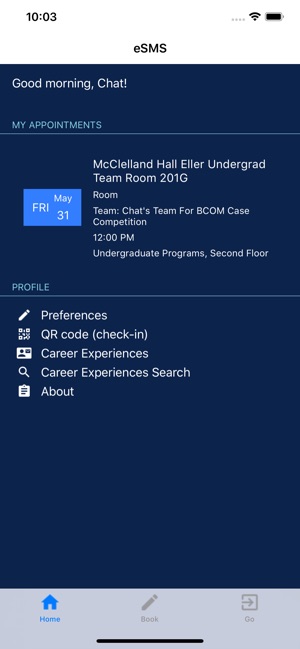
A career coach's average annual salary is $41,392. Some charge per month while others offer a bundle of services. Some coaches offer checkins between sessions. Other coaches may offer additional support such as email communication or group or chat options. There are many cost options to choose from for career coaches.
A career coach earns an average salary of $41,392 annually
Career coaches can make anywhere from $32,280 to $81,640 per annum, but the average salary of $53,247. The top 10% of Career Coaches earn over $72,000 per annum, while the bottom 10% make less than $22,000. Many factors affect the salary of Career Coaches, such as location and years of relevant experience.
A Career Coach is available to help you decide what career path you want, whether it's for a job change or simply to make sure that your career moves in the right direction. A Career Coach can help you with everything from writing a resume to finding work. They can help with your transition to a different career or retirement phase.

Some career coaches offer packages of services.
There are many reasons career coaches can prove invaluable. They can help you make a career transition, assist you in your job search, as well as be your advocate for your career. This can lead to significant career advancement and job satisfaction.
Career coaches assist you in developing the skills and mindset needed to succeed within your chosen field. They work with clients to identify their strengths and explore their passions. They are objective and can offer honest feedback. They can help you establish your professional goals as well as provide guidance for implementing them. They can also assist you in evaluating your progress toward achieving these goals.
A career coach can also help you navigate the process of negotiating a salary, review resumes, and conduct interviews. They can help with job searches as they can give insight into market trends. You can also get advice from them about whether you should accept or reject a job. A career coach should be professionally trained and highly qualified in their area. Prices for career coaching services vary depending on which type you choose. Some coaches offer a free consultation, or an introductory meeting.
Some people charge monthly
Career coaches charge different prices depending on the coaching they provide and the time they take to work with clients. Some charge by the hour, others on a per-session fee. Price for one session can vary depending on where you live and the cost of living. Experienced career coaches may charge more and have higher degrees.

If you don't want to spend a lot of money, you can always choose to do it yourself. Online resources can be used to assist you in your work. Online resources are a great way to find helpful advice and career information. Many career coaches provide downloadable materials so that you can learn on your own. You may also find follow-up materials in some of these resources.
FAQ
Can a life coach help you lose weight?
A coach may not be able help you lose weight. However, they can provide advice on ways to reduce stress and promote healthier lifestyles.
This means that a life coach can help you make positive changes in your life such as improving your diet, reducing alcohol consumption, exercising more often, and managing your time better.
What do I have to pay upfront?
You don't have to pay until you get your final bill.
Numerous life coaches don’t require any upfront fees, so you can start to reap the benefits of their expertise quickly and without spending anything.
However, if you choose to hire a coach, you'll need to agree on a price before beginning your relationship.
What is a coach for relationship life?
A relationship coach will help you to create strong relationships.
They can help you better understand yourself, what others think about you, and how you are perceived by them. They are there to support you when and where you need them.
A coach in relationship and life understands the importance and benefits of self-care. They encourage clients to make time for things that make them happy and satisfied.
Relationship coaches are able to identify and resolve problems quickly and effectively by having a deep understanding of human behavior.
Relationship life coaches can be used at any stage of your life, whether it's starting a new relationship, getting married, having kids, moving house, changing jobs, going back to university, dealing with bereavement, transitioning to parenthood, coping with financial difficulties, planning a wedding, buying a home, leaving an abusive relationship, managing conflict, overcoming addictions, improving communication skills or finding inner strength.
What credentials do life coaches need?
Life coaches must have a deep understanding of human motivation and personality. They need to be able understand people's thoughts and behavior and know what motivates.
A life coach who is successful must have the ability to listen, communicate and provide counseling. Additionally, they must have the ability to motivate clients.
Successful life coaches must be flexible enough that they can adapt their approach to meet changing needs.
What are the advantages of working with a coach to help you live your best life?
A life coach helps you live a better life by helping you achieve goals, overcome obstacles, change habits and become happier.
Life coaches can help individuals improve self-awareness, confidence, relationships, and motivation.
A life coach will help you prosper!
What are the responsibilities of a life coach?
A life coach can help people reach their personal goals by offering education on nutrition, fitness and work/life balance. They also provide guidance on relationships, career development, and health.
Life coaches should help clients have positive attitudes toward self-improvement, and set realistic goals for success.
The most important thing a life coach does is provide support and encouragement. Although they don't know all the answers, they can help you ask questions and find solutions.
They are here to help you make better decisions and take action to reach your goals.
What is the difference between a coach and a therapist in life coaching?
A life coach will help you to live a better lifestyle. They can help you improve your relationships and learn how to manage emotions. The goal of the program is to not only make people feel good, but to also help them learn how to do it themselves.
A therapist specializes in helping someone who is struggling with emotional issues such as depression, anxiety, and trauma. Therapists are trained to understand these problems and provide specific treatments for each issue.
Although life coaches work with individuals, they don't have formal training in treating mental health conditions. However, many life coaches have had some experience working with people suffering from depression, anxiety, or any other psychological disorder.
Statistics
- According to relationship researcher John Gottman, happy couples have a ratio of 5 positive interactions or feelings for every 1 negative interaction or feeling. (amherst.edu)
- People with healthy relationships have better health outcomes, are more likely to engage in healthy behaviors, and have a decreased mortality risk.1 (verywellmind.com)
- If you expect to get what you want 100% of the time in a relationship, you set yourself up for disappointment. (helpguide.org)
- Needing to be 100% positive and committed for every client regardless of what is happening in your own personal life (careerexplorer.com)
- Life coaches rank in the 95th percentile of careers for satisfaction scores. (careerexplorer.com)
External Links
How To
How to become an Life Coach
One of the most frequently asked questions online is how to become a life coach. There are many options for becoming a life-coach, but there are some steps you must take before you become a professional life coach.
-
Find out what you want to do. You must know your passion and interest before starting any career. If you don’t know what you are interested in, coaching can be very simple. Think about why you are interested in this profession before looking at other options. If you find yourself thinking, "I would like to help people" then look up how to become a life coach.
-
Create a plan and set your goals. Plan your career once you've decided what you want. Learn about the profession by reading books. Write down everything you learn so that you can refer back to them when needed. You should not rush without a clear vision or goal. You should set realistic goals for the next few years.
-
Be patient. Becoming a life coach takes a lot of patience and dedication. The first year of coaching is the most difficult. After your initial training, clients may require that you work with them for 2-4 hours each week. This could mean you have to work many hours on weekends and nights. You won't feel exhausted if you enjoy what you do.
-
Get certified. You will need to be certified by a recognized organization like the NLP Certification Institute (NLCI) in order to become a licensed coach. Certification will give you credibility among potential employers and open doors to new opportunities.
-
Network. It is important to establish relationships with other coaches and experts. Share knowledge with others and ask for advice. Once you have enough experience you can offer assistance to others who are just starting out in coaching.
-
Keep learning. Never stop learning. Read books, articles and blogs about the field. You can learn more about the psychology and human behavior of people, as well as communication skills.
-
Be positive. Negative attitude is the number one mistake made by new coaches. It is important to remember that success in life coaching requires a positive attitude. Your words and actions will reflect on your clients. Always keep an optimistic outlook, and remember to smile!
-
Practice patience. As we mentioned, the first year as a coach is often the hardest. Take breaks and remember why you made the decision to become life coaches.
-
Enjoy the process. While it can seem like an endless journey ahead, the rewards far exceed the challenges. You will meet amazing people along the way and also grow personally.
-
Have fun. Enjoy the ride. Remember, have fun.